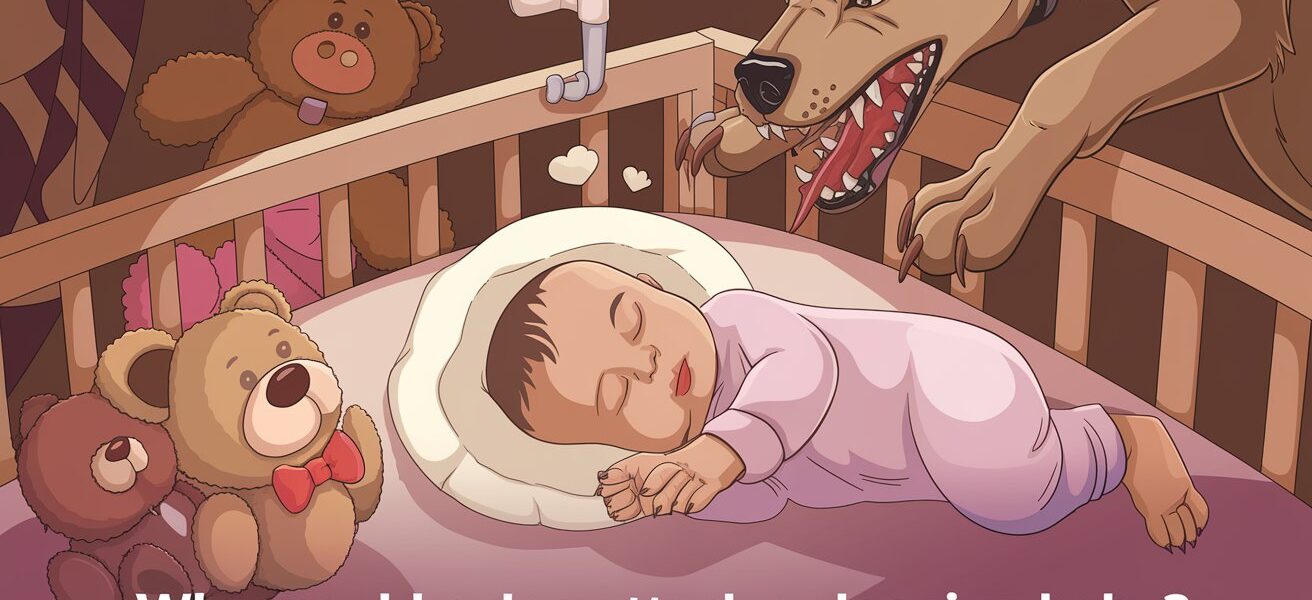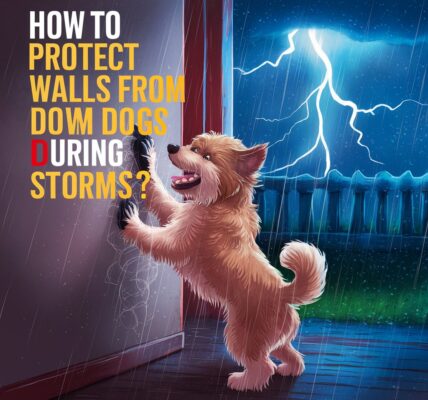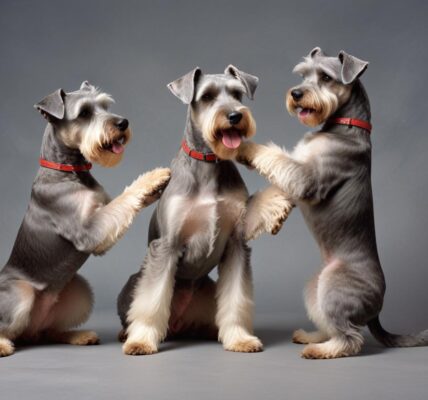
Why Would a Dog Attack a Sleeping Baby?
A dog might attack a sleeping baby due to instinctual, social, or medical factors. Dogs have natural territorial
instincts, and a new baby can disrupt the household dynamic, causing confusion or jealousy. If a dog hasn’t been
socialized around babies, it may react to the baby’s unfamiliar smells, and sounds, or suddenly with anxiety or
aggression. Medical issues, such as pain or discomfort, can also make a dog more irritable and likely to respond
defensively, even without intending harm. Supervision, proper training, and gradual introductions are key to
creating a safe environment for pets and infants.
Instinctual Behavior in Dogs
Dogs are descendants of wolves and, despite domestication, they still carry many of their ancestors’ instincts. One of
these instincts is territorial protection, where dogs defend their perceived space or family members from any
threats. In some cases, a dog may view a new baby as an intruder, particularly if the child disrupts the dog’s
established routine or relationship with its owners.
Additionally, dogs rely heavily on their senses of smell and sound to understand their environment. The scent of
a newborn baby may be unfamiliar, which could cause confusion or anxiety in a dog. Babies also tend to make
sudden movements and noises, even while sleeping, which may trigger a startled or defensive response from the dog.
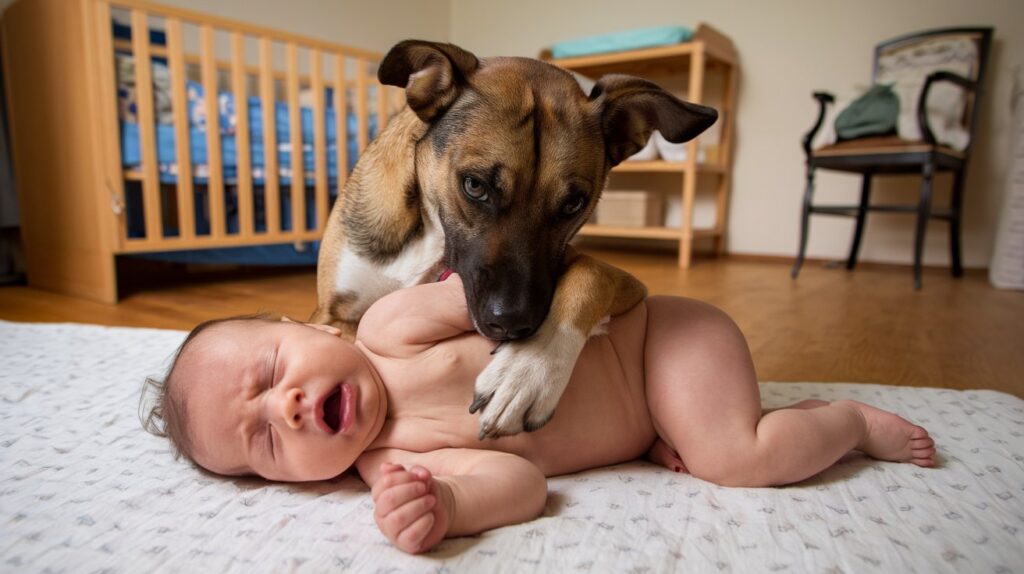
Lack of Socialization
A dog that has not been properly socialized may struggle to adapt to the presence of a baby. Socialization is a process
that teaches dogs how to behave around different people, animals, and environments. Without this training, dogs
may become fearful, anxious, or aggressive in unfamiliar situations. This lack of socialization can be
particularly dangerous if a dog has never been around infants before.
For example, a dog that is used to adults may not know how to react to the size, smells, and movements of a baby.
The dog may perceive the baby as prey or a toy, leading to an unintentional but harmful interaction.
Resource Guarding
Another common cause of aggression in dogs is resource guarding. This behavior occurs when a dog becomes
overly protective of its food, toys, or even its owners. A dog that feels its resources are being threatened may react
aggressively to protect them. In some cases, a dog may see a baby as a competitor for the attention and affection of
its owners.
If a dog is used to being the center of attention, the arrival of a baby can lead to feelings of jealousy or insecurity. The
dog may act out by growling, snapping, or even attacking the child, especially if the dog feels its space is being
invaded.
Medical Issues and Pain
Sometimes, a dog’s aggression may stem from underlying health problems. Dogs in pain or discomfort are more
likely to react defensively when they feel threatened, even by something as harmless as a sleeping baby. Conditions
like arthritis, dental pain, or other injuries can cause a dog to become irritable and more likely to lash out.
In these situations, a dog may not intend to harm the baby, but its reaction may be a result of its physical state. A
thorough veterinary examination can help identify any health issues that might be contributing to aggressive
behavior.
Unintentional Provocation
Babies, even when sleeping, can inadvertently provoke a dog. Sudden movements, unusual sounds, or even the act of
reaching out during sleep may startle a dog, triggering an aggressive response. Dogs, especially those that are more
prone to nervousness, may feel cornered or threatened in these instances, causing them to react with aggression.
This is particularly dangerous because a baby, unlike an older child or adult, cannot defend itself or escape from a
situation where the dog feels provoked.
Preventing Dog Attacks on Babies
While these scenarios can be frightening, it’s important to note that prevention is possible. With proper
precautions and training, families can minimize the risk of a dog attacking a baby.
Introduce the Baby Gradually
When bringing a new baby home, it’s essential to introduce the dog to the infant in a controlled and calm manner.
Allow the dog to sniff and observe the baby from a safe distance while providing positive reinforcement in the
form of treats or praise. This helps the dog associate the baby with positive experiences rather than seeing it as a
threat.
Supervision is Key
Never leave a dog alone with a baby, even if the dog has never shown signs of aggression. Supervision ensures that
you can intervene immediately if the dog shows any signs of discomfort or aggression. Create a safe space for the
dog, such as a separate room or crate, where it can retreat when it feels overwhelmed.
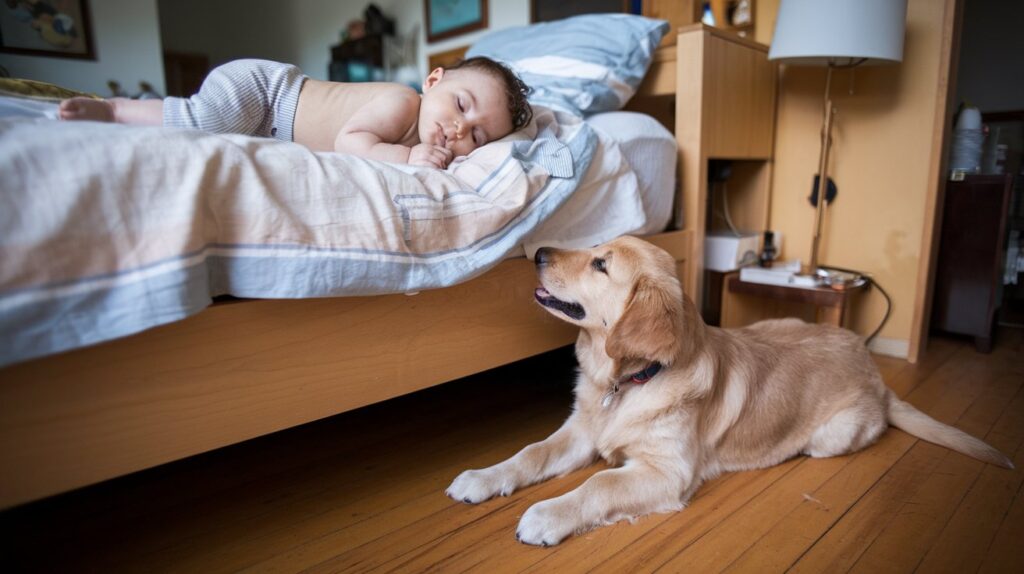
Training and Socialization
Investing in obedience training and socialization is one of the best ways to prevent aggressive behavior.
A well-trained dog is more likely to respond to commands and less likely to act out in stressful situations. If possible, enroll
the dog in training classes that focus on behavioral modification, especially if it has a history of aggression.
Addressing Health Issues
Regular veterinary check-ups are crucial for identifying any medical issues that could contribute to aggressive
behavior. If a dog is in pain, treating the underlying condition can significantly reduce its irritability and the
likelihood of an attack.
Desensitization Techniques
Desensitization is a method that involves gradually exposing the dog to the baby’s sounds, smells, and movements in
a controlled way. This technique helps the dog become accustomed to the baby’s presence over time, reducing the
risk of aggression. For example, playing recordings of baby cries or using blankets with the baby’s scent can help the
dog adjust to the new member of the family.
Conclusion: Why Would a Dog Attack a Sleeping Baby?
In conclusion, while a dog attacking a sleeping baby is a rare and alarming event, it is usually the result of a
combination of factors such as instinct, lack of socialization, or even medical issues. Understanding these potential
triggers and taking proactive steps can help prevent such incidents and ensure a harmonious household for both pets
and children.
FAQs: Why Would a Dog Attack a Sleeping Baby?
Why would a dog suddenly attack a baby?
A dog might suddenly attack a baby due to territorial instincts, jealousy, or feeling startled by the baby’s movements
or sounds.
How common is it for dogs to attack babies?
Dog attacks on babies are rare but can happen, especially if the dog feels threatened, anxious, or unaccustomed to
infants.
Why is my dog attacking her babies?
A mother dog might attack her puppies if she’s stressed, feels her space is threatened, or if the puppies are weak or
unwell.
What to do if a dog is aggressive towards a baby?
Keep them separated, supervise all interactions, seek help from a professional trainer, and ensure the dog has a calm
environment.

Jahanzaib Kaleem is a passionate and knowledgeable pet writer and veterinarian dedicated to enhancing the well-being of pets and educating pet owners around the world. With years of experience in veterinary medicine and a deep love for animals, Jahanzaib combines his medical expertise with a flair for writing to deliver insightful and practical advice on pet care.

